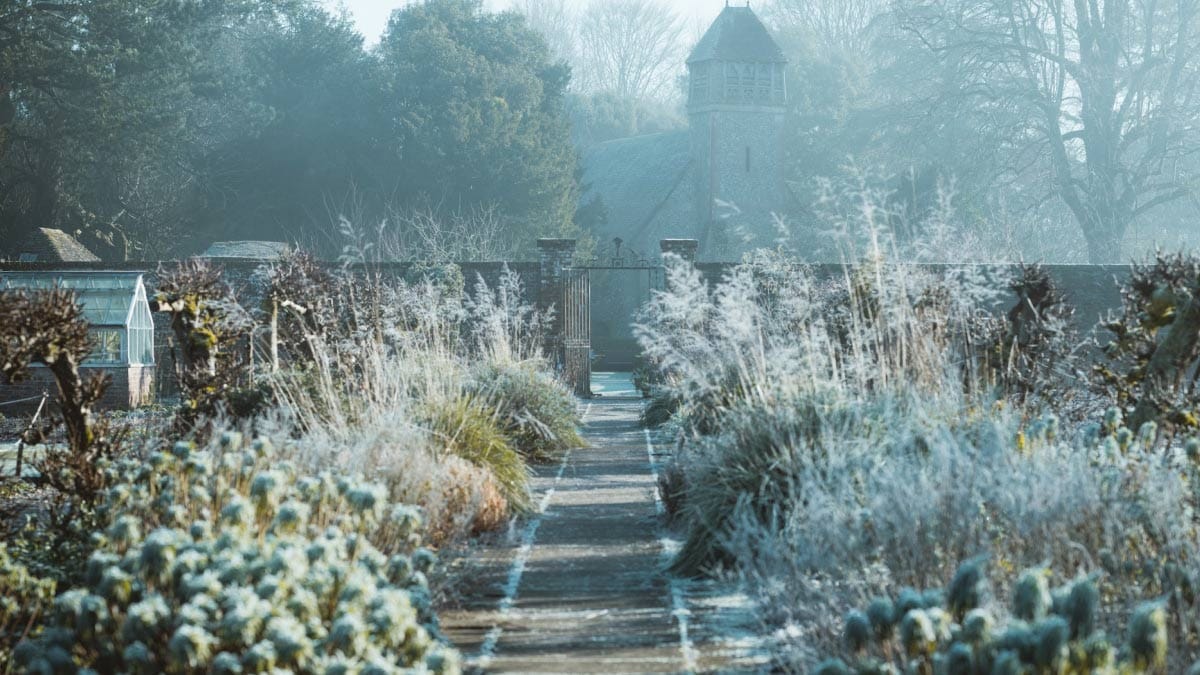This time of year is usually considered a quiet time for gardeners, but there are plenty of essential jobs to keep us busy. We’ll take you through some of the most important. It can be tempting to let nature take its course and leave dead or dying plants where they are and clear up what’s left of them in the spring. By doing so, you’ll be lending a helping hand to many pests. Slugs and snails, for example, will happily feast on this material, giving them a head start on damaging precious seedlings next spring. Other pests will over winter on organic debris, so by removing the dead material it removes their habitat, leaving the soil exposed so that predators such as birds can naturally keep them in check. Most of this material can be composted, turning this season’s waste into next season’s organic matter. Diseased material should be removed promptly at any time of the year, and this is no exception. Doing so reduces a chance of spreading diseases, especially ones such as Blight and Club root disease. Materials should be disposed of through municipal green waste collections where they exist, as these use heat to break down the material. Alternatively, you can burn them at home.
It’s also a good time of year to tackle those perennial weeds and other unwanted plants which are prolific spreaders like ivy or poppies. Dig them, pull them, or chop them, taking care to remove as much of the stems and roots as you can. Doing this now will weaken the plants, making them more susceptible to winter weather. By the time the spring comes, it will be easier to see which ones still need your attention. As with diseased material, avoid composting perennial weeds and burn them instead.
Current gardening wisdom is not to be too tidy however, make sure there are areas of your garden where predators can overwinter such as a bug hotel and it’s okay to leave some crops in the ground to provide food for beneficial insects and animals and to ensure there are some early flowers in your garden in the spring to provide an early source of nectar. Burning garden waste which cannot be composted or put to other good use can still provide a valuable product for your garden, Ash and a fire will give you great satisfaction to easily get rid of diseased and woody material in weeds. Wood ash as opposed to coal ash can be a great addition to the garden. It contains potassium in the form of potash which is a vital nutrient for crops.
Ash is alkaline, so take care when using it on your soil. Use small amounts in your compost, especially if you compost lots of acidic material like citrus peel, or use it as a substitute for lime such as adding to a bed where you’ll be growing brassicckas to reduce the risk of club root disease. It is also an excellent supplement for fruiting plants, bushes, and trees such as apples, raspberries, and tomatoes.
Most sheds and outbuildings will benefit from some maintenance and repair before the winter, check for and fix any loose or rotten boards, and make sure that door hinges are in good order to help eliminate drafts. Sharpen and oil the blades of gardening tools. After a season of use, they can become dull and ineffective. Vegetable oil works just as well as more expensive and less environmentally friendly oils, and it can also be rubbed into the wooden handler of tools, wash seed trays, pots, labels, and other garden equipment and allow them to dry to avoid the spread of molds before storing them.
With weeds and old plants removed, it’s a great time to dig over your plot and incorporate organic matter such as composts ready for spring planting. The winter weather, particularly freezing and thawing action, will break down the organic matter, kill over wintering pests, and will help to break down heavy clay and improve its structure and drainage.
Many fruit trees and bushes can be pruned now so check which varieties you have and the best way to care for them. Make sure that stacks and ties on existing fruiting plants are in good condition and tie in or stake new growth to prevent it from being damaged by the wind. Pots and containers should be moved to sheltered areas and if temperatures are regularly below freezing in your location, make sure they are raised off the ground and wrapped in bubble wrap or sacking to prevent the prop from cracking. Other frost sensitive plants can be put in the cold frame or glasshouse where they will stay until spring and in many areas you are likely to have crops growing through the winter such as oriental leaves, some root vegetables or brassicckas, clear away leaves and other debris. At the end of the growing season it can be tempting to leave the garden behind and retreat to the warmth of indoors, but by tackling some of these tasks you’ll be getting a head start for the next season, ready for the excitement of spring.
